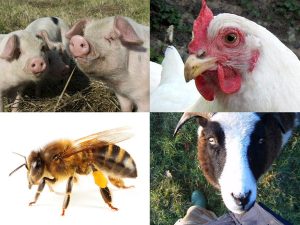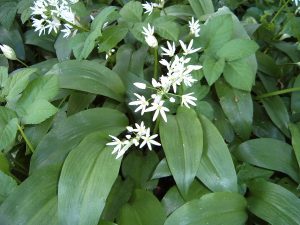Commoning - introduction

People Power Mosaic by Herb Neufeld, CC BY 2.0
“The law locks up the man or woman, who steals the goose from off the common
But leaves the greater villain loose, who steals the common from off the goose.”
– 17th century protest song
Contents
What is commoning?
This is such a huge topic that, to provide an overview, we’ve put everything under headers, many of which have a link at the end to further information.
Commoning is a practice of collaborating and sharing to meet everyday needs and achieve well-being, of individuals, communities and lived-in environments. There are three dimensions:
- a resource pool (some stuff shared, used in common)
- a community of people (contributing to, drawing on and depending on the pool), and
- a frame of regulation, governance and equity enacted by that community around those common resources.
How does the commons work? From the Next System Project.
People often think of commons as being ‘the stuff’ – e.g. a piece of land, but a commons is not a commons until it’s actively commoned, in everyday usage, by some people who know they have a common relationship with it, and a mutual responsibility. We stress ‘commoning’ because it’s more of a verb, an attitude, a practice, a way of living rather than a ‘natural thing’, ‘out-there’.
This attitude can be brought to many kinds of resources, not just pieces of nature: public urban environment, digital means of communication, indigenous means of subsistence, tools or equipment, infrastructure of all kinds, ‘superstructure’ of all kinds: public-domain cultural resources like the findings of science, works of literature, news feeds. Even language itself is a form of commons. There are many forms of practice, depending on:
- what the commoned ’stuff’ is
- the community’s location in history and geography
- the dominant relations of trade and exchange
- the specific cultural background of values, etc.
It’s very diverse, creative and particular.

Commoning is quite distinct from – and frequently opposed to – both the (capitalist) market and the (liberal) state. Its purpose is to ensure that resources, which should not be controlled by one person or one huddle of people (because diverse people depend on them) don’t end up being owned or controlled by one person or sectional set of interests, and are available to all participants on a fair basis.
Commoning is certainly NOT ‘the sharing economy’ promoted by Über, Airbnb, Task Rabbit and the like. These are infrastructures owned by corporations that have been made to look like ‘free choice’ open spaces on the surface (common pools), which pump out private wealth and knowledge from the arrangements, serving wealthy elites.
Past and present
Most of people’s needs through (pre)history have probably been met through commons, and an estimated 2 billion people today depend for at least part of their livelihood on resources held in common.
Elinor Ostrom on the myth of the ‘Tragedy of the Commons’.
Hardin vs Ostrom
Garret Hardin became infamous for promulgating his view of commons as ‘a tragedy’. Elinor Ostrom’s painstaking research shows him to be unhelpfully mistaken in his perception.
Enclosure, ending enclosure, preventing enclosure
Preventing and ending enclosure is a core commitment of commoning. Three fundamental classes of means of subsistence and well-being have been increasingly taken out of commons: land, means of exchange and economic coordination / labour power.
A co-op is not (necessarily) a commons
A co-op is a commons of ownership and thus will by definition have some kind of democratic stewardship machinery. But formal ownership and the right to enjoy benefits of ownership are not the same as stewardship and curating – fundamental dimensions of commoning.
More on co-ops and commoning …

Open this, open that – ‘open’ everything
When the words ‘open’ or ‘collaborative’ are used – or used together – it often indicates that commoning of some sort is happening. The field of free / open-source software for example is seen by its participating collaborators as a commons (a protocol commons and a commons of digital code).
What are the benefits of commoning?
People
A functioning commons furnishes subsistence and well-being for its members. All participants have the same rights to enjoy the commons – it’s fair. Indigenous commons are essential for survival. In industrial societies, ‘commoned’ global designs can mean cheap – and feasible, and lower-carbon – local production.
What are commons? Another nice introduction.
Community / society
The stewarding of commons requires people to interact, negotiate etc. – it builds community. Democracy, anti-authoritarianism, mutual regard and mutual aid are the norm. Common infrastructures can mean not everything has to be done by person-to-person communication or individual work. Common protocols can even mean that software can be allowed to control some things, and to present everyone with equivalent tools and access.
Common superstructures – of values, language, aesthetics – can mean much activity becomes unselfconscious, a kind of dance. Curating (producing and identifying good, proper stuff to contribute to a commons) is a powerful humane and collective vision.
Nature
Nature is nowadays largely treated as an unregulated pool to be exploited by individuals motivated by self-interest. Companies and countries compete for natural resources and ways to dump waste and ‘side effects’. The actual material world is complex and interconnected, needing to be stewarded in commons, enjoyed under common obligations and curated under common modes of evaluation, rather than extracted by individualist persons, corporations and nations.
Newer matter-manipulating technologies such as nuclear, nanotech or gene tech go beyond the scope of everyday unaided vision – just like biosphere damage has done – and potentially can deeply disrupt ‘ordinary life’. Discovering how to develop these under commons regulation is a profound challenge; the state and the market have spectacularly failed to recognise and prevent ecological damage.

However, commoning is a way of doing things that doesn’t have ‘externalities’ – by definition commons affect the life of everyone, and with so many kinds of stuff being brought into commons, they affect every aspect of life too.
Commoning is intrinsically a way to bring human need and ecosystem stability into an aware mutual relationship.
What can I do?
So many kinds of things can be commoned; a person might be participating actively in one, ten or dozens of projects of commoning. Commoning can penetrate many aspects of a person’s life – it can weave an entire way of life for change and for well-being.
The commons have to be produced; they don’t sit there waiting to be commoned, or ‘restored’. Experiment, exchange insights and discover how to common the three classes of means of subsistence and well-being: land, means of exchange and coordination, labour power.
Be a commoner! Constantly ask: Why isn’t this a commons? How can it be?
Design globally, manufacture locally.
What you can do in . .
Natural infrastructure: land and ‘wild commons’
Support indigenous commons; buy Fair Trade; join and support organisations that campaign for and experiment with commoned regulation of ‘wild’ resources; bring commodity land into enduring common ownership and construct commons of housing and land use, via community land trusts.
More on commoning of land and nature …
Economic infrastructure: means of peer-to-peer exchange and coordination of production
Money: use credit unions, local currencies and mutual credit. With mutual credit, we can build a global Credit Commons that takes the control of money from banks – replacing currency with credit and commoning the means of exchange. Get involved in peer-to-peer production, including Linux operating systems, Wikpedia, Fablabs, Makerspaces etc.

Cultural superstructure: labour power, cultural commons
Includes public-domain cultural resources like the findings of science, works of literature, news feeds; knowledge commons; plus a couple of things that are ‘almost commons’ – massive online open courses (MOOCs) and open access journals.
More on cultural commoning ...
Things are moving most quickly in:
Digital Commoning
Digital media and means are extremely important in how activists organise into the future, how commoning may be done across distributed commons, and what needs to be commoned. Software code, algorithm-steered systems, digital media, etc. constitute a prominent present-day still-emergent kind of material that can be commoned.
The internet and the web: the world-wide web could have been a commons, and lots of people who work in the software and web sphere remain committed to the principles of P2P-commons in software code, digital data and digital processing capacity.
Enclosing digital commons: Microsoft enclosed an emergent software code commons: GitHub.
More on the enclosure of digital commons …
Grab a cup of tea and let David Bollier explain the commons in a bit more detail.
Social media: plus tools, platforms. If you want to use software tools and platforms in the future, track ongoing developments in distributed P2P protocols, apps and platforms – for example, wikis.
More on commoning social media, tools, platforms …
Wikis: Wiki and its younger cousin Fedwiki are forms of P2P commons in digital media. They’re of enormous importance, as digital ‘means-for-knowing-with’, that are open, collaborative and peer-to-peer.
So you can see what they look like, here’s Mike Hales’ fedwiki containing the information above, including further info pages.
Latest developments
New monetary ideas such as mutual credit and use-credit obligations are leading to the development of housing commons, energy commons and Credit Commons.
Further resources
- Growing the Commons forum – post queries on all commons topics here; there are specialists lurking to answer them for you.
- Growing the Commons blog – subscribe to be informed of commons news.
Specialist(s)
Thanks to Mike Hales for information.
The specialist(s) below will respond to queries on this topic. Please comment in the box at the bottom of the page.

Mike Hales is a culture hacker, researcher-designer and writer, who’s worked in the chemical industry, regional economic strategy, national systems of innovation and the participatory design of workplace IT infrastructures. A baby-boomer libertarian socialist, deep into legacy-production. He has work in progress that is being gradually shifted over into a family of federated wikis. His main project is a pattern language for living an activist life of commoning.


















